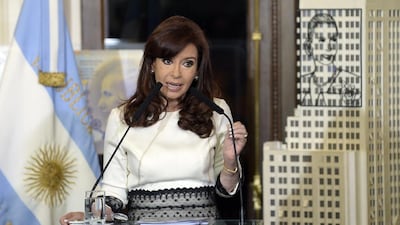Affection for ruling families might be considered the normal state – a precondition, even – in monarchies. It is evident in coronations, jubilees and national days in the 40-plus countries where kings, sultans, emirs princes, grand dukes and others reign. And it has been found in the most unlikely places.
After the Second World War, for instance, the ending of the rule of the White Rajahs of Sarawak – a colonial dynasty established on the island of Borneo in the 19th century by the British Brooke family – was bitterly opposed by the native subjects.
“As St George is for England, so a Brooke is to us. Do not fail us,” wrote an organisation of local Dayaks to the last Rajah Muda or heir apparent. There is even an island in the south Pacific where Britain’s Prince Philip is worshipped as a god.
The founding act of most republics, from America to modern China, Egypt and Iraq, on the other hand, has been the overthrow of existing monarchies and the rejection of the hereditary principle.
Why is it then, that so many of them seem to be so fond of dynasties? This is not just a matter of the US, where the White House has been occupied by a Bush or a Clinton for 20 of the past 26 years. The tendency is widespread, as The Economist noted last week. It mentioned Japan, South Korea, the Philippines, Bangladesh, India, Pakistan, Kenya, Canada, China, Peru, France, Belgium and Greece as countries where being related to a “former political chief” appears to be an advantage.
But even that was a selective list. Argentina’s president, Cristina Fernandez de Kirchner, succeeded her husband. South Africa’s second president, Thabo Mbeki, is the son of a prominent ANC leader. Indonesia’s former president, Megawati Sukarnoputri, is the daughter of the country’s founding leader, Sukarno. Botswana’s current head of state, Ian Khama, was elected 28 years after his father died in office.
Various arguments go some way to explaining the phenomenon. Vocations – the law, medicine, religious office – often run in families. Patronage networks perpetuate the dominance of particular clans. Inherited privilege may lead some to grow up with greater confidence to seek public office. Name recognition helps.
But that isn’t quite enough to square the paradox that in countries that are supposed to be strongly based on the idea of an equal citizenry, a Mitt Romney is so much more likely to be elected to public office than someone with a less illustrious surname. Mr Romney’s father was a governor, cabinet member and one-time presidential hopeful. The US economist Seth Stephens-Davidowitz recently calculated that the son of a US senator is 8,500 times more likely to become a senator than the average American male. And the “son of a president was roughly 1.4 million times more likely to become president than his supposed peers”.
Not all of this can be put down to nepotism. America is a democracy where people are free to choose their representatives. But it seems to be part of human nature to sympathise with Thomas Carlyle’s dictum that “the history of the world is but the biography of great men”, whose qualities we then project on to their children or other relatives.
Sometimes the heirs fail to live up to the ancestral name. He may have made a good speech in India’s parliament this week, but Rahul Gandhi has long looked woefully ill-equipped to lead the Congress party back to the commanding heights it enjoyed under his father, grandmother and great-grandfather. The late Conservative MP Winston Churchill was a poor chip off his namesake grandfather’s block, never reaching ministerial ranks in his 27 years in the British parliament.
In other instances, however, it appears that talent does run in the genes. In France, the National Front’s founder Jean-Marie Le Pen had a gift for populist rabble-rousing; but his daughter and successor as party leader, Marine, has managed to move the party from the margins and make it acceptable to at least the 25 per cent of the population that voted for it in recent elections.
In the 1960s, the British Labour leader Harold Wilson often teased the then prime minister, Sir Alec Douglas-Home (who had disclaimed his peerages to be able to take a seat in the House of Commons) about having been the 14th Earl of Home. It prompted the response: “I suppose Mr Wilson, when you come to think of it, is the 14th Mr Wilson”. Wilson’s jibe had teeth because in an age averse to deference, Douglas-Home’s aristocratic lineage seemed anachronistic. But nobody was interested in the other Mr Wilsons, while the previous earls were figures of note, simply by virtue of the power and wealth that went with the title. Then, as now, the lure of a great family name – whether illustrious or infamous – still existed.
We might not like to admit it. It appears to attach too much importance to accidents of birth, and carries the whiff of snobbery. But if it reveals an attachment to history and a nation’s sense of self – a remembrance of the great men and women who have shaped our present – it is not to be deplored. It is still up to the people to decide who to vote for. And if that means another Bush or Clinton in the White House, who is to blame (if blame need be assigned) but the voters themselves?
Sholto Byrnes is a senior fellow at the Institute of Strategic and International Studies, Malaysia


